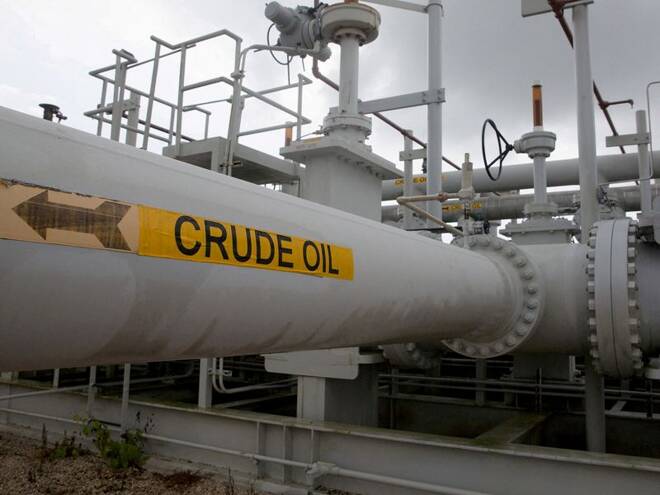Advertisement
Advertisement
Exclusive-China agrees with U.S. to release oil reserves near Lunar New Year – sources
By:
(Reuters) - China agreed with the United States late last year to release crude oil from its national strategic stockpiles around the Lunar New Year holidays that start on Feb. 1 as part of a U.S.-initiated plan to reduce global prices, sources told Reuters.
By Nidhi Verma and Timothy Gardner
(Reuters) – China will release crude oil from its national strategic stockpiles around the Lunar New Year holidays that start on Feb. 1 as part of a plan coordinated by the United States with other major consumers to reduce global prices, sources told Reuters.
The sources, who have knowledge of talks between the world’s top two crude consumers, said China agreed in late 2021 to release an unspecified amount of oil depending on price levels.
“China agreed to release a relatively bigger amount if oil is above $85 a barrel, and a smaller volume if oil stays near the $75 level,” said one source, without elaborating.
The release of crude stocks by China will occur around the Lunar New Year, the sources said. China will be closed for the biggest annual holiday from Jan. 31 to Feb. 6.
China’s National Food and Strategic Reserves Administration did not immediately respond to a request for comment.
The agreed release of reserves by China is the result of a series of discussions, reported by Reuters in November, that the Biden administration held with other major oil consumers after tight supplies drove global oil prices to multi-year highs..
Biden and top aides discussed the possibility of a coordinated release of crude stocks with close allies including Japan, South Korea and India, as well as with China.
The United States has conducted crude swaps and sales from its reserves over the past few weeks while Japan and South Korea have also announced plans for crude sales.
China, which has long kept details on its state reserves a secret, conducted last September its first-ever public crude reserves auction of about 7.4 million barrels, about half a day’s consumption in the country.
In November, the National Food and Strategic Reserves Administration said it was “working on” a release of crude reserves, but declined to comment on the U.S. request for the coordinated release among buyers.
Oil prices rebounded above $80 a barrel this week buoyed by supply disruptions in Libya and Kazakhstan, a fall in U.S. crude inventories to their lowest since 2018, and an improvement in the outlook for fuel demand in Europe as governments there ease COVID-19 restrictions. [O/R]
Benchmark Brent crude futures was at $84.79 a barrel and U.S. West Texas Intermediate crude at $82.23 a barrel at 0730 GMT.
(Reporting by Timothy Gardner in Washington and Nidhi Verma in New Delhi; Writing by Chen Aizhu; Editing by Florence Tan, Simon Cameron-Moore and Jacqueline Wong)
About the Author
Reuterscontributor
Reuters, the news and media division of Thomson Reuters, is the world’s largest international multimedia news provider reaching more than one billion people every day. Reuters provides trusted business, financial, national, and international news to professionals via Thomson Reuters desktops, the world's media organizations, and directly to consumers at Reuters.com and via Reuters TV. Learn more about Thomson Reuters products:
Advertisement
